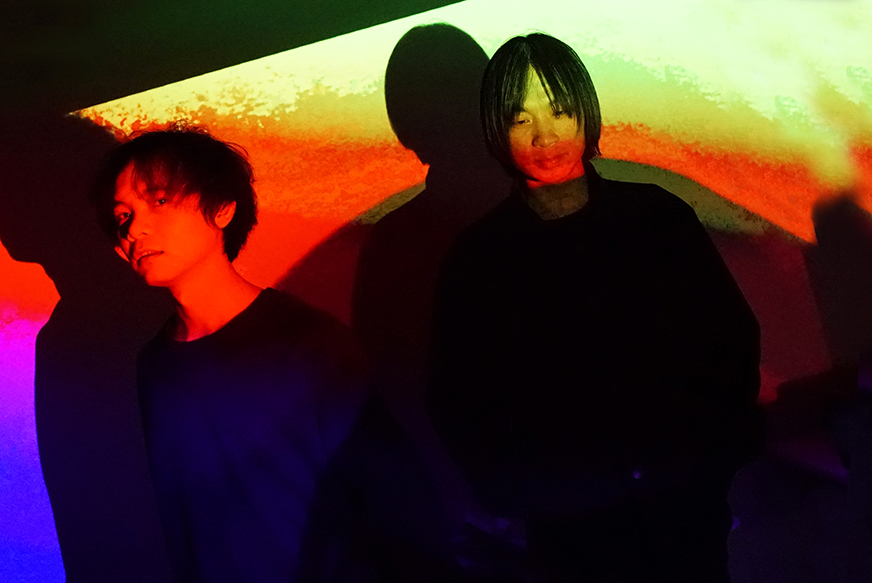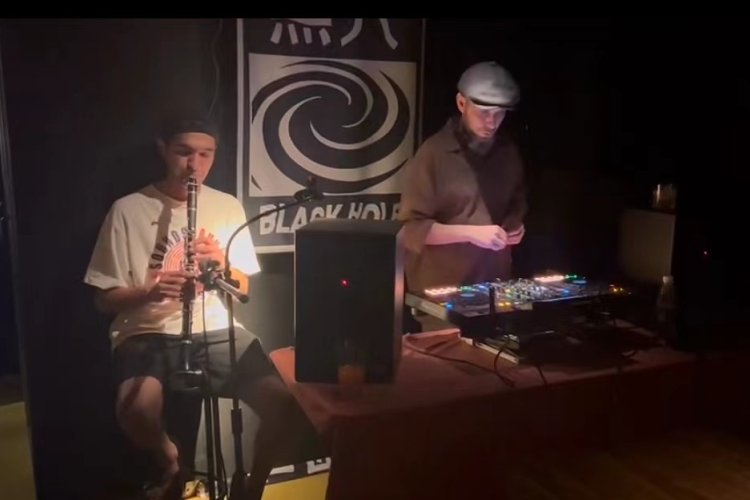How Literal Explorations of Dark Depths Inspired Run Run Run's Eerie Debut
Speaking to Run Run Run's Xiao Dou (pictured above right) you get the impression that much of the band's dark, jagged sound is inspired by early explorations he undertook as a boy in his hometown in Guizhou.
"I grew up in the countryside, and the caves were my playground," Xiao Dou recalls, wistfully describing descending into the winding and craggy limestone terrain that defines large swaths of his southern home's province. "Guizhou also has thick vegetation, wide forests, and some highlands. There’s also little sunshine there – instead, it’s cloudy and foggy most of the time."
That moody weather coupled with the vast and verdant expanses below work as a suitable analogy for Run Run Run's own brand of psychedelia, which most recently they've been honing ahead of their Jul 27 show at Beijing's Frequent Collaborative (the new Fruityspace managed venue in the C5 compound) and the release of their debut album Hoon last month on esteemed Beijing label Maybe Mars.
The album's name is equally as fitting given that Xiao Dou's rigorous work schedule often sees the guitarist seconded from his regular bandmates: "[Hoon] is an onomatopoeia. I fly quite a bit for business trips. And every time when taking off, I hear a sound like ‘hoon,’ so I used this name," Xiao Dou explains. For his upcoming show and recording on the new album, he recruited the help of drummer Maote (pictured top left) who otherwise performs in the also southern-hailing but Beijing-based band Backspace.
The writing team behind Hoon, meanwhile, includes three different Chinese ethnic minorities: drummer Zheng Jie from the Gelao (仡佬) minority, Miao (苗) bassist Cao Fan, and keyboardist Deng Rui and Xiao Dou himself who are both of the Buyi (布依) people.
Despite that varied background, Xiao Dou is quick to downplay their ethnic roots, stating instead that it was jamming along to the cornerstones of Western rock in university that led them to where they are today, eventually forming a band in 2011 called Dice. “[That band] was influenced by The Velvet Underground and some American bands from the '60s, and was more improvisational than what I play now,” he says.

"Though we are minorities, we have been assimilated since childhood. We have little chance to listen to our own music, only when people are practicing magic rituals with sacrificial songs. And we just listened to Western music when we were in college. So being minorities doesn’t help us on the music side. And our ability to play music is very ordinary."
For the listener, however, Run Run Run’s music sounds anything but ordinary. From the free-flowing groundswell guitar of “Curtainfall” to the trance-like, bottomless deep grooves of “Fireball,” the music on Hoon will reverberate all the way down to your bone marrow.

That thrilling, sinking feeling can be found throughout Hoon’s seven tracks, which evoke a sense of resistance, both against assimilation and homogenization, an influence that Xiao Dou pins on his regional childhood memories: “I was very impressed by the echo in the caves as a boy,” he says, adding, "And now, instead of just improvising onstage like I did with my old band Dice, I try to imitate the echo of those caves in Run Run Run’s songs."
Catch Run Run Run at Frequent Collaborative at 9pm on Jul 27.
All this talk of Guizhou got you hungry? Why not try some of the local food at Zha Zha Bistro.
More stories by this author here.
Email: kylemullin@truerun.com
Twitter: @MulKyle
Instagram: mullin.kyle
Photos courtesy of Maybe Mars







